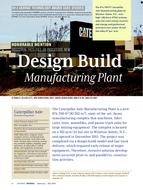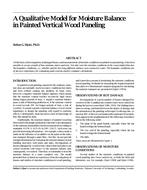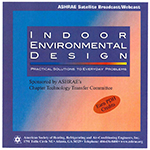The standard blower door test methods, such as ASTM E779, describe how to use a single blower door to determine the totalleakage of a single-zone structure such as a detached single-family home. There are no standard test methods for measuring interzonalleakage in a two-zone or multi-zone building envelope such as might be encountered with an attached garage or in a multifamilybuilding. Some practitioners have been using techniques that involve making multiple measurements with a single blowerdoor as well as combined measurements using multiple blower doors. Even for just two zones there are dozens of combinationsof one-door and two-door test protocols that could conceivably be used to determine the interzonal air tightness.We examinedmany of these two-zone configurations using both simulation and measured data to estimate the accuracy and precision of eachtechnique for realistic measurement scenarios.We also considered the impact of taking measurements at a single pressure versusover multiple pressures.We compared the various techniques and evaluated them for specific uses. Some techniques work betterin one leakage regime; some are more sensitive to wind and other noise; some are more suited to determining only a subset ofthe leakage values. This paper makes recommendations on which techniques to use or not use for various cases and providesdata that could be used to develop future test methods.
Presented at Thermal Performance of Exterior Envelopes of Whole Buildings XII, December 2013
Citation: Thermal Performance of Exterior Envelopes of Whole Buildings XII
Product Details
- Published:
- 2013
- Number of Pages:
- 10
- File Size:
- 1 file , 2.3 MB
- Product Code(s):
- D-BldConf13-26


